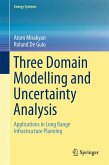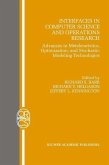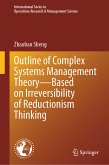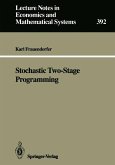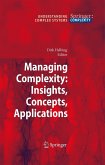The methodological development of foresight is an important task that aims at strengthening the pool of the tools available for application, thereby empowering the actors involved in foresight practice. Elaborating further on methodological issues, such as those presented in the present book, enables the actors involved in foresight to begin to critique current practice from this perspective and, thirdly, to begin to design foresight practice. The present trends towards methodological concerns indicates a move from 'given' expert-predicted futures to one in which futures are nurtured through a dialogue among "stakeholders." The book has four parts, each elaborating on a set of aspects of foresight methodologies. After an introductory section, Part II considers theorizing about foresight methodologies. Part III covers system content issues, and Part IV presents foresight tools and approaches.
Dieser Download kann aus rechtlichen Gründen nur mit Rechnungsadresse in A, B, BG, CY, CZ, D, DK, EW, E, FIN, F, GR, HR, H, IRL, I, LT, L, LR, M, NL, PL, P, R, S, SLO, SK ausgeliefert werden.



